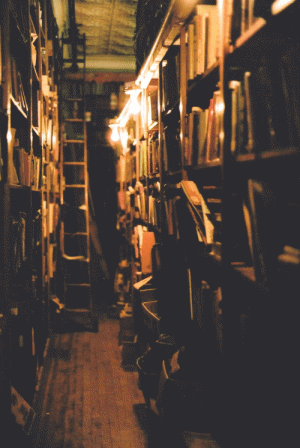literature & technology: long live libraries
I was quite appalled to come across an article in the Guardian, where Horrible Histories author Terry Deary declares that libraries have had their day and they are no longer relevant or useful. In the UK, there have been a number of cases where local councils have considered closing public library branches in order to save money. Authors and members of the publishing industry have stood up against these proposed closures, rallying to ensure libraries do not close, but Terry Deary seems to be the one author who is taking a completely different stand.
Deary argues that libraries rob authors and publishers of their income, are out-dated and don’t really have a place anymore, as school libraries should be providing children with enough reading resources and that people need to learn to pay for books, because there is not an expectation that other forms of entertainment, such as films, should be free. I can understand aspects of Deary’s point of view, but, from my perspective, he completely disregards the place of libraries and what they give back to the community.
For starters, why does Deary presume that everyone can afford to buy all the books they want to read? For some people, that simply isn’t an option. Books are luxuries that the weekly budget simply can’t cover, and so why should those people and families be denied access to a wide range of reading material? Sure, this perhaps limits the authors’ income, but there are schemes in place where authors can claim a certain amount of money per times their books are borrowed from the library, up to a maximum limit. So, no, the author won’t earn as much as if each time the book was borrowed that person actually bought the book, but what makes Deary so sure that these borrowers could afford to buy the book, anyway? He has more readers because of public libraries, and those readers might recommend his books to others, who will then purchase the book. Personally, I think it is only a good thing that children who otherwise will not have the opportunity to read his work can.
Public libraries offer much more than access to books and print media: they offer internet and computer access to people who may not have the luxury of having such access at home, they run book clubs and writing groups and a number of other events, such as story hours for children, which benefit the community. The library may still stock an out-of-print book which is hard to find anywhere else, and the amount of information contained within the walls is astronomical. To be able to go into a library and research almost any topic is still important, despite the amount of information found on the internet. And if you’re looking for something very specific, a book is more likely to give you what you’re looking for than one hundred internet pages.
Deary’s point about people not expecting other forms of entertainment to be free is valid, to a certain point, but again, I think the internet discredits this. How many people expect to read the news for free on the internet? How many people expect ebooks and online writing to be free? How many people download music, movies and television shows for free from the internet? And those artists receive absolutely no compensation in those cases. With libraries, at least the author can expect some compensation. No, it isn’t as much as if each borrower had bought the book themselves, but again, who says each borrower can afford to do that? And if children hadn’t borrowed his books from the library, would he have so many readers and be so successful?
I think the place of libraries within the community is changing along with the technology changing the book industry. But libraries know how to adapt. They are not only places to borrow books, but to borrow movies and CDs, browse the internet and meet with other like-minded people. Our local library even provides a Wii console in the youth area, and kids can come and play video games too. I hate to think what would happen if libraries were suddenly considered a pointless waste of money by local governments. I daresay this would result in a dramatic decrease in book sales too, despite what others might think.
So before you pass judgement, if you haven’t ventured to your local public library recently, why not stop by? You might be surprised at everything your library has to offer, and everything which goes on in these community spaces. And then decide if you think your area could do without a public library.



Excellent article. Another thing Terry Deary has overlooked is that people can listen to music free on the radio. Performers receive compensation in the same way that authors receive compensation for books being borrowed from libraries.
Terry Deary is surely being wilfully obtuse. Libraries are one of the most important sources, particularly for younger children, of exposure to new books. As you say, many of his readers would have been introduced to Horrible Histories through their local libraries.
It’s immensely disappointing, not to mention ungracious, that such a successful author would make these kinds of careless, irresponsible comments. Neil Gaiman’s response on twitter sums up Deary’s views nicely: “Selfish & stupid, shortsighted & sad”.
Thanks for your comments! Veronica, I hadn’t seen that- brilliant, I love Neil Gaiman.